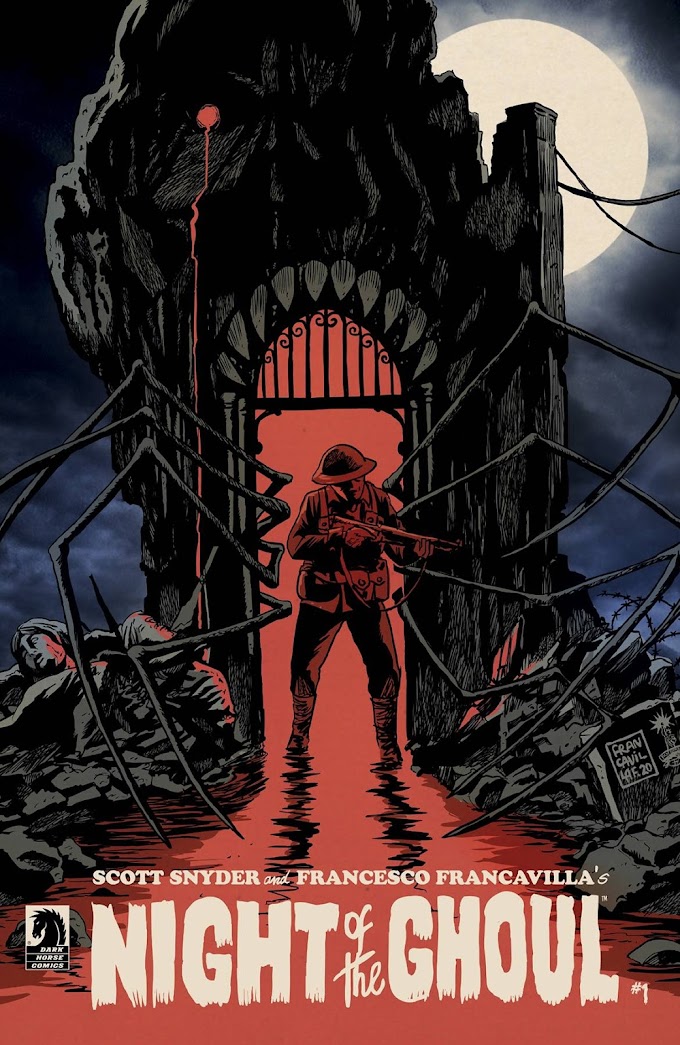 Original Script by Rod Serling
Original Script by Rod SerlingAdapted by Mark Kneece
Illustrated by Chris Lie
Walker and Co.
An aging boxer, Bolie Jackson, is trying one last time to make a comeback. A hero in the eyes of a young boy without a father, Bolie's stark realism conflicts with the boy's belief in magic. When a crooked promoter pushes Bolie over the edge, he's all but lost.
Except that our boy has strong faith in the idea of a wish, and wants Bolie to win. Can it happen...in the Twilight Zone?
Continuing the series of adaptions by Kneece, this episode is notable because it features a large cast of African Americans despite being written at a time (1960) when television was painfully white. As per usual, Serling is ahead of his time in terms of making social commentary, this time just by having his characters be ordinary black people instead of ordinary white people. It's a nice touch, and won Serling an award for his efforts.
Kneece has updated the references a bit this time, using 1982 as a past date, but for the most part this is presented as the episode was written. He places a strong emphasis on Serling's desire to show that the cynicism of adulthood may not be as healthy as we like to make it out to be. This is a story, after all, that would have a happy ending, if only Bolie was willing to roll with the idea of magic in the same way he's been able to roll with the punches of life.
In fact, this is one of the few times in a non-humor episode where Serling implies the world of the Twilight Zone is better than the world we live in. Given that the point is that maybe we need to believe in miracles in an age that was (and is) filled with danger, anger, and hate, it's not surprising that that's the lesson we're to take away from this script.
When Bolie talks about what the world has done to him and we contrast it to the world the young boy wants us to believe in, it's a very powerful moment in the story. Kneece hits just the right tone, using the same techniques they did when filming the original. A faithful adaptation is just the right fit here.
This is the second time I've see Chris Lie's art on the Twilight Zone series, but I don't think it worked as well this time around. Given a perfectly normal world to play with, Lie doesn't do enough to bring tension to the artwork. The characters feel too stiff and posed on too many of the pages. It's just not as active as it could have been.
There are a few cool moments, such as when Bolie is facing defeat and Lie uses the rising blood to represent his unconsciousness. He also does keep the camera angles varied, as he did in Death's Head Revisited. But given how well I liked his art in the other story this version of his pencils come up a bit flat, which is a shame.
The Big Tall Wish may not be as out there as a lot of Serling's other stories, but it makes us examine how we look at life. I don't need to examine Kneece's work, though--it's top notch again. This series has been an enjoyable read, and I definitely recommend both this book and the rest of Walker and Co.'s Twilight Zone adaptations.





![Sweat and Soap [Ase to Sekken] by Kintetsu Yamada](https://blogger.googleusercontent.com/img/b/R29vZ2xl/AVvXsEgMnQltxjWqGS1_duhCp9Er1a0NbALuSFrqvjaV4_PjN_w67xCGghYt-l0qKyqTH7Ei7gbq_mxVq8aPAuOiyaArwAMLJWhpGmOYaARUBnwvjmv2-ZIe20m_zR5CvKnPdI6US_AuOnmi3gSX/w680/57525895-BA7E-4EF8-9FE4-89F9C164E1A4.jpeg)

